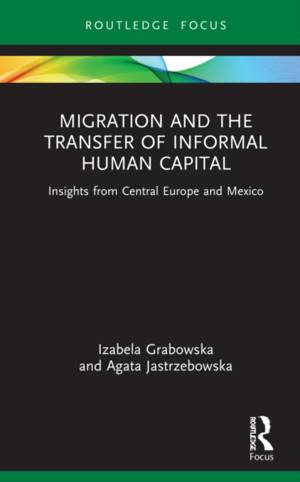
- Retrait gratuit dans votre magasin Club
- 7.000.000 titres dans notre catalogue
- Payer en toute sécurité
- Toujours un magasin près de chez vous
- Retrait gratuit dans votre magasin Club
- 7.000.0000 titres dans notre catalogue
- Payer en toute sécurité
- Toujours un magasin près de chez vous
Migration and the Transfer of Informal Human Capital
Insights from Central Europe and Mexico
Izabela Grabowska, Agata JastrzebowskaDescription
This book explores the intangible human capital which international migrants bring with them and develop further when working and living abroad, drawing on case studies and original data from Central Europe and Mexico-USA.
The book demonstrates that despite the fact that many international migrants might be working in their destination countries at a level below their formal qualifications, or else might be formally unskilled, but with practical non-validated skills, they can still acquire and enhance considerable informal human capital in the form of mind skills, soft skills, maker skills and life skills. The book analyses how migration-impacted informal human capital (MigCap) is acquired and enhanced as a result of international migration and what the opportunity and constraint structures are for their acquisitions and transfers. Adopting a comprehensive perspective, the book investigates how migration-impacted informal human capital is transferred by migrants between localities and areas of human actions and activities.
Moving beyond the focus on migration as a source of economic capital, this book demonstrates that learning by observing, communicating and doing with others, embedded in social relations can facilitate the enhancement of intangible human capital among both skilled and unskilled migrants. It will be of interest to researchers of migration, sociology, economics, management and business studies, and other related social science disciplines.
Spécifications
Parties prenantes
- Auteur(s) :
- Editeur:
Contenu
- Nombre de pages :
- 144
- Langue:
- Anglais
- Collection :
Caractéristiques
- EAN:
- 9780367820312
- Date de parution :
- 10-01-22
- Format:
- Livre relié
- Format numérique:
- Genaaid
- Dimensions :
- 140 mm x 216 mm
- Poids :
- 326 g

Les avis
Nous publions uniquement les avis qui respectent les conditions requises. Consultez nos conditions pour les avis.






